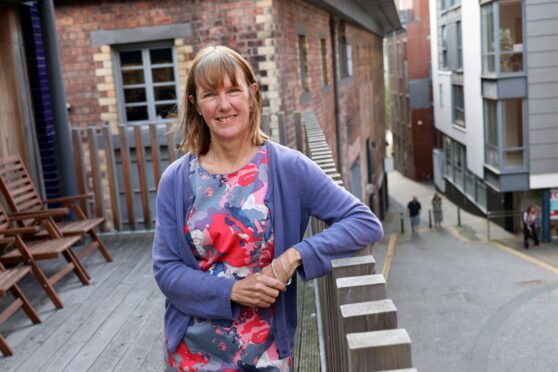
Scotland’s Makar talks about working with young people, the growth of poetry as a performance art and reaching a milestone age.
What will you be talking about at Pitlochry Festival Theatre’s Winter Words?
I’ll be in conversation with director David Greig, so we’ll be talking about the effect of the pandemic on both poetry and stage, and about bringing poetry to the stage.
How were poets affected by the pandemic?
Poets have fared much better than actors or musicians from the complete shutdown of live events. It didn’t affect writers as badly. If we did do events, it was always possible to do so by Zoom, so we weren’t as badly affected as many others. I keep being told people have turned to poetry – I don’t know if that means they have started writing it or reading it.
Is poetry seen as much more of a performance art now?
Social media has done an enormous amount for that and the idea of performing is massive now. It wasn’t when I was starting out. I wouldn’t have told anyone when I started – I was almost ashamed about it. The performance part is massive these days. I remember going to poetry readings and seeing the poet just mumble into the book and it was no way to treat an audience, so if the idea develops that you have to give something of a performance, even just speaking clearly is a benefit. But the idea of performing can overwhelm the poetry and I sometimes wonder if people spend enough time with a blank piece of paper and really concentrating on that, before taking it the stage or social media.
How has being Makar felt so far?
I didn’t know what to expect, but it’s been more fun than I thought it would be. You don’t know what request will come in next, so I have to be very open to all sorts of suggestions. My first gig was the opening of parliament, which was a great way to start. I enjoyed that very much. And Cop26 was good.
Do you enjoy working with young people?
I taught creative writing at St Andrews and Stirling for 20 years. I don’t want to lose that contact as it was the best thing university provided me with. To keep in touch with them and their ideas and what they are thinking.
You were first published at 20 and you’ll turn 60 in May. How do you feel about that?
I don’t feel any need to slow down or stop on that, but I also feel it’s the time of life when you are thinking of handing over. That’s why I want to keep in touch with young people. I can see the shape my life is taking. I’m not going to live forever so there is a sense of handing over, and yes, it’s an interesting time.

Enjoy the convenience of having The Sunday Post delivered as a digital ePaper straight to your smartphone, tablet or computer.
Subscribe for only £5.49 a month and enjoy all the benefits of the printed paper as a digital replica.
Subscribe